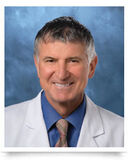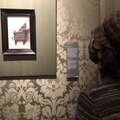Special Research Update: “Is Your Surgeon Likely To Perform Mitral Valve Repair?” With Dr. Steven Bolling
By Adam Pick on July 27, 2011
Over the years, I’ve received several patient testimonials for Dr. Steven Bolling. While I had never met Dr. Bolling, I was fortunate to attend his lecture, “Mitral Valve Repair Predictability” at the Mitral Conclave. I found many elements of his presentation VERY important for patients facing heart valve surgery. That said, I was lucky to meet with Dr. Bolling to discuss his findings.
Thanks to Dr. Steven Bolling, heart surgeon, for taking the time to share his research with us. So you know, Dr. Bolling is the director of The Mitral Valve Center at the University of Michigan in Ann Arbor, Michigan. During his 27-year career, Dr. Bolling has performed over 8,000 cardiac operations — with over 2,500 procedures involving the mitral valve.
For the members of our community that are hearing impaired, I have provided a written transcript of this video interview with Dr. Bolling below.
Adam: Hi, everybody. It’s Adam and we are coming to you from the AATS in Philadelphia. I’m very excited to be sitting next to Dr. Steven Bolling who is the director of the mitral valve clinic at the University of Michigan and we’ve got a discussion we were just having about a recent presentation that you gave at the Mitral Conclave. You presented a piece that was titled “Who is performing mitral valve repair surgery in the United States”. I thought what you talked about was really interesting and really valid for the patients out there. I was hoping you might be able to summarize some of the key findings from your research.
Dr. Bolling: Well, thanks, Adam. This was really an interesting piece of research. It looked at about 50,000 cases of mitral valve surgery and correlated all the factors that would predict a patient getting a mitral valve repair as opposed to replacement. You know, as you know, the concept of mitral valve repair is so different for the patients as opposed to mitral valve replacement that that patient can expect to live 10 or 20 years longer with a mitral valve repair and not have the complications of being on coumadin or facing a redo. Mitral valve repair really is the gold standard. It really almost cures that disease. We looked at all the surgeries done in the United States for mitral valve surgery for three years in a row and our findings were that by individual surgeon volume, the more that surgeon operated on the mitral valve, the more for any given patient he was likely to repair it. Now, in and of itself, that’s not outstanding. The more that you do of anything the better you are but this is really the first time in the United States we’ve been able to show that by individual surgeon volume and your surgeon should be accountable. And I think it is a very important thing for patients to know how much mitral valve surgery that surgeon does. And it’s sort of been jokingly said that if your surgeon advises mitral valve replacement, you should replace your surgeon. But, in a sense, I think that’s true.
Adam: Dr. Bolling, thank you so much for all that you’re doing, the research, the clinical work. I know we’ve got a lot of folks out there who have come to you for surgery and they’ve had a great result. I want to thank you for coming by the booth today and sharing your research with all the folks at our community so thanks so much for what you’re doing.
Dr. Steve Bolling: Adam, thanks for having me here.
Keep on tickin!
Adam
|
Nupur Andrews says on July 27th, 2011 at 3:17 pm |
|
I have been told that due to my anterior leaflet being prolapsed repair would be difficult. It is encouraging to see this article and confirmation that repair is the golden standard. I intend to ask my surgeon how many repair vs replacement he/she has performed, when I start “shopping” for a surgeon. Btw, Adam, can we do a survey of how many people have traveled out of state to get valve surgery? I live in the bay area but I would not hesitate to go to Cleveland for a chance of repair. Curious if others feel the same way. Thanks. |
 |
|
Jessica K says on July 28th, 2011 at 9:12 pm |
|
I am so happy to see this post. We are going to be meeting Dr. Bolling on Monday morning. My husband needs to have open heart surgery in August and we have been going to UofM for his care. Our surgeon Dr. Deeb is having Dr. Bolling focus on the mitral valve while he does the aortic. Its funny how life works and this blog post came out today and we are seeing him Monday. We will be getting our surgery date and all of our questions answered Monday so it will be a big day. I look forward to meeting him. thanks for the great blog post! |
 |
|
Andrew Wrigley says on July 29th, 2011 at 5:59 am |
|
The questions that hangs over me (I had mitral valve replacement in 2009) are: 1. Why do patients live longer with a repair? 2. I have heard that ventricule function is affected by valve replacement. Why is this and what are the consequences? I want to qualify my circumstances. I got endocarditis due to a floppy mitral valve, and after 3 months in hospital had the op. My surgeon attempted a repair. It didn’t work due to “too much redundant tissue”. I have a mechanical valve, so on warfarin/coumadin and it is a bore, but not that much. What the heck, I play tennis three times a week and go on 15 mile walks… for pleasure. The major side effects for me are a degree of memory loss and a stiff back. Both may be unrelated. But happy to be alive and, uhrm, tickin’. |
 |
|
sunny says on August 30th, 2011 at 7:39 pm |
|
At age 11, I was diagnosed with rheumatic fever which ended up scarring my mitral valve. I was digansoed with moderate to severe mitral regurgitation. I had mitral valve surgery at age 22 at USC done by Dr. Starnes. The Doctor used an annuloplasty ring to repair my mitral valve. Unfortunately, some months after the surgery we don’t know exactly when the valve started leaking again. Now my mitral valve is leaking to the same degree as pre surgery levels. My systems are shortness of breath upon exertion. I went back to dr. starnes and he recommended a mitral valve replacement surgery. After doing some research, I came across several publications that suggest valve repair is not a good option for patient with rheumatic fever history. However Dr. starnes did not discuss it with me about the outcome of the repair since I have had history of rheumatic fever. I prefer repair since I am only 26. I have told by several surgeons that chances of repair again would be slim which goes against the popular approach which is to repair. |
 |













